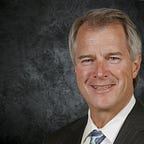Spotlight on the Human Prosperity Project at the Hoover Institution
Over the course of the 20th century, socialism and free-market capitalism have presented very different economic and political ideals. Created by the Hoover Institution, the Human Prosperity Project explores historical records to assess the impact of these two economic systems. This fascinating essay series investigates in a scholarly way the consequences of these systems for individual liberty and human welfare. The Human Prosperity Project is just one of the many thought-provoking resources available to the public on the Hoover Institution’s website. Read on for some highlights from this essay series.
Two Philosophies
Socialism is a political and economic system in which government or collective control and ownership play a major role in the production and distribution of services and goods, with governments frequently substituting or intervening in markets.
Free-market capitalism, on the other hand, centers around private ownership of production chains, with investment governed by private decisions, and production, prices, and distribution of services and goods determined mainly by competition in a free market.
Advocates of capitalism emphasize the scope for individual freedom and economic growth created by the system. Supporters of socialism extol its egalitarian nature, arguing that socialism is more compassionate than the free market.
A Lesson from German History
Published in September 2020, Russell A. Berman’s essay Leaving Socialism Behind: A Lesson From German History reflects on the demise of the Berlin Wall, which marked the end of communist rule in East Germany and the failure of its socialist economic system. Berman explains that this historic moment in 1989 was a dramatic climax in a long history of civil disadvantages in East Germany, with living conditions in the region deteriorating since its occupation by the Red Army and split from West Germany as the Iron Curtain fell across Europe.
Berman explains that between 1949, when Germany was formally divided, and 1961, when the border was cemented by construction of the Berlin Wall, a constant flow of migrants moved from East to West Germany, abandoning Soviet socialism in favor of western capitalism. Only when the Berlin Wall made it impossible to leave did the East Germans stop “voting with their feet.”
In fact, even once the wall was complete, many East Germans attempted to “flee the republic”-a crime under communist rule for which many were shot. Berman points out that there were no similar stories of westerners seeking to enter East Germany. Indeed, between 1950 and 1989, East Germany’s population fell by 2 million, while West Germany’s population rose by 12 million.
While the streets of West Germany were jammed with expensive cars, trams and buses dominated in East Berlin, with few workers owning their own mode of transport. One journalist from the time described the street-level view of East Berlin as having the appearance of a prison camp, with shabby roads and pavement; gray, unkempt buildings; and military and police at frequent intervals. The source indicated that East Germans did not seem free and that they were reluctant to talk to strangers for fear of drawing attention to themselves.
Political Freedom and Human Prosperity
Larry Diamond, a senior fellow at the Hoover Institute, examines a critical issue in the comparative study of nations: the correlation between different economic and political systems and human prosperity. He explores whether capitalism is necessary for developmental success, and whether democracy and capitalism are inextricably linked.
In his essay Political Freedom and Human Prosperity, Diamond asserts that socialism rarely delivers prosperity, arguing that a market economy and private property are vital to genuine, sustained developmental progress and civil liberties. Diamond also argues that, in the long term, the best system for promoting human prosperity is democracy, explaining that aside from nations with a vast windfall of natural resources wealth, all of the world’s most prosperous countries are democracies.
Diamond points out that good governance is a crucial intervening variable, with rule of law, transparency, and a just state regulatory environment inviting critical investment and innovation. He cites Singapore as an example of a country that has become rich without democracy, but explains that few other nations could repeat this formula, since in the absence of open ideological and political competition, governments tend to “go bad,” abusing both property rights and civil liberties.
To read more from the Human Prosperity Project, explore its website.
About the Hoover Institution
The Hoover Institution is renowned globally for its eminent scholars, library, and archives. This public policy think tank seeks to promote prosperity and economic opportunity, advancing ideas and concepts that ultimately improve the human condition. Simultaneously, the Institution promotes research and scholarship that safeguards peace, not just for America, but for all humankind.
Condoleezza Rice, who has been a member of the Hoover Institution community for more than 30 years, is the organization’s new director. She describes its mission as providing the highest quality research, disseminating ideas to address challenges faced by free people in free societies, and understanding barriers to the advancement of liberty and freedom worldwide. Rice explains that the Hoover Institution matters to free markets, free people, and their futures. In her view, it is also an institution dedicated to preserving history, so that humankind can learn from past experiences, good and bad, and apply them to inform decisions in the present.
Originally published at https://markstevens.com on December 15, 2020.
